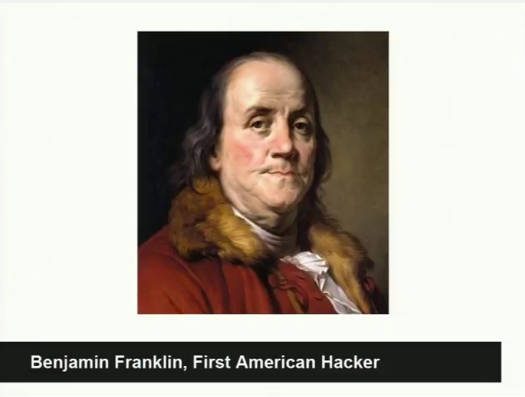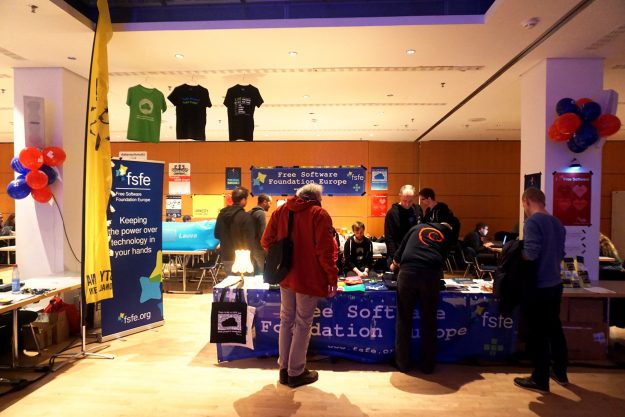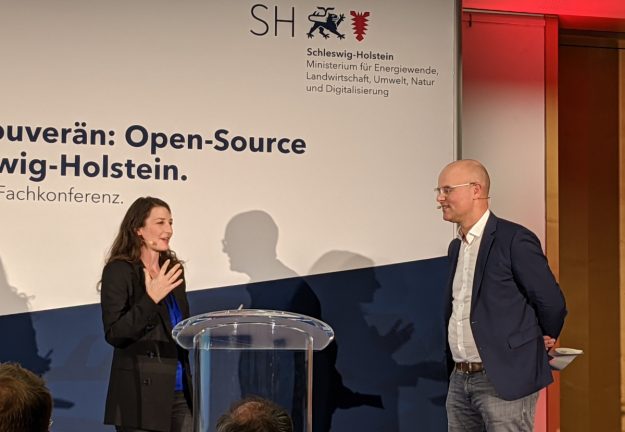What does Tucker Carlson have in common with open-source software? As far as we know, absolutely nothing. When we asked Christine about this, she said, "There's more to life than software."
Posts published in “Politics”
The software industry plays a large role in Ukraine's economy, with many Ukrainian developers working remotely from Ukraine for software vendors located in the EU, UK, and US. Training manuals in the Ukrainian language will help veterans of Ukraine's military struggles against Russia take advantage of this opportunity.
As it seems inevitable that the UK will extradite Julian Assange to the US to face espionage charges, a rally to support the Wikileaks' editor is planned to take place in Boston on Friday.
The proposed legislation, which would regulate "gatekeeper" platforms in the EU, doesn't go far enough, according to the FSFE.
With Stallman's recent exit from the FSF, has the time come to put ideological correctness aside and just let Linux be Linux?
The Electronic Frontier Foundation wants to protect you from warrantless searches by computer repair people and they’re looking for your help.

Roblimo’s Hideaway
Warrant? Hah! Did John Wayne ever get a warrant? Fourth Amendment, you say? We don’t need no stinking amendments around here. We’re Geek Squad and we’re on the side of THE LAW, so if we find anything illegal on your computer and hand it to the FBI, you have no right to complain, pilgrim, and we deserve a reward!
Robin “Roblimo” Miller is a freelance writer and former editor-in-chief at Open Source Technology Group, the company that owned SourceForge, freshmeat, Linux.com, NewsForge, ThinkGeek and Slashdot, and until recently served as a video editor at Slashdot. Now he’s mostly retired, but still works part-time as an editorial consultant for Grid Dynamics, and (obviously) writes for FOSS Force.
Open data is an important concept at Code for America, which addresses the widening gap between the public and private sectors in their effective use of technology and design.
The Screening Room

For the past 10 years, Phil has been working at a public library in the Washington D.C.-area, helping youth and adults use the 28 public Linux stations the library offers seven days a week. He also writes for MAKE magazine, Opensource.com and TechSoup Libraries. Suggest videos by contacting Phil on Twitter or at pshapiro@his.com.
One of the things we can expect to see after Trump takes office in January is the demise of Net Neutrality, which some say will signal the end of a free Internet.

Op-ed
News organizations that like to have obituaries written and ready to go to bed well before a death actually occurs might want to go ahead and assign someone the task of writing an obit for Net Neutrality. Without a doubt, one thing that’s sure to happen when Trump begins his weekly commute to the Oval Office is an end to the legal principle that Internet service providers should treat all Internet traffic equally.
Christine Hall has been a journalist since 1971. In 2001, she began writing a weekly consumer computer column and started covering Linux and FOSS in 2002 after making the switch to GNU/Linux. Follow her on Twitter: @BrideOfLinux
Also included: FBI hacks 8,000 with single warrant, new Cinnamon desktop release, “government-backed attackers” after journalists, and FOSS Force adds beef to newsfeed.
FOSS Week in Review

Okay, Thanksgiving is over. Let the sales begin. Which reminds me, I have to buy a new cheap Wi-Fi router — cheap being the operative word. Any suggestions?
Otherwise, it’s back to FOSS news…
Christine Hall has been a journalist since 1971. In 2001, she began writing a weekly consumer computer column and started covering Linux and FOSS in 2002 after making the switch to GNU/Linux. Follow her on Twitter: @BrideOfLinux










